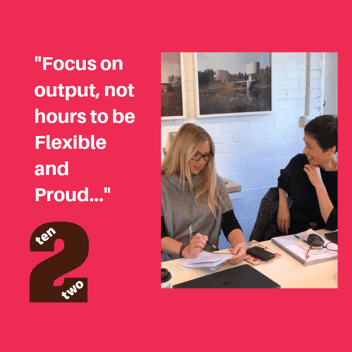How to Find a Mentor: Your Step-by-Step Guide
Having a mentor can be one of the most valuable resources for your career growth. Mentors offer insights, guidance, and encouragement that can take years to discover on your own. Finding the right person and asking them to be your mentor can feel daunting, but it’s absolutely achievable—and worth the effort! In this guide, we’ll walk you through how to find a mentor, why having one is so important, and how to approach someone for this key role.
What Does a Mentor Do?
In simple terms, a mentor is someone who offers guidance, support, and feedback to help you navigate your career path. They may offer advice, listen to your goals, help you develop new skills, or provide constructive feedback. A mentor’s impact can be especially powerful early in your career or during a career transition.
Mentors often help with:
• Introducing you to valuable professional contacts
• Providing letters of recommendation
• Offering feedback on skills and areas for growth
• Identifying resources and new opportunities
• Supporting you in job applications and interviews
Step 1: Decide if a Mentor is Right for You
Not everyone needs a mentor, and that’s okay! Ask yourself if you thrive under guidance or prefer figuring things out independently. If you enjoy self-discovery and carving your own path, mentorship may not be essential. However, even if you prefer a solo approach, staying open to advice from trusted professionals can still be incredibly beneficial.
Step 2: Define What You’re Looking for in a Mentor
Before searching, think about what kind of mentor would be the best fit for you. Consider where you are in your career, what you want to achieve, and the guidance you’d benefit most from. Do you need industry-specific insights? Skill development tips? Networking opportunities? Knowing what you’re looking for makes it much easier to spot the right person.
Step 3: Start with Your Own Network
One of the easiest places to find a mentor is within your own network. Think about friends, family, or professional connections who may have mentoring potential. You could also look into local organisations, volunteer groups, or industry associations where experienced professionals are often happy to help others in their field.
Step 4: Make a List of Potential Mentors
Once you have a picture of your ideal mentor, start brainstorming people who match that vision. Consider professionals whose achievements you admire and those who have reached positions you aspire to. Ideally, they should be people you know or have a connection to—mentorship usually starts with someone you already respect.
Step 5: Prepare Your Proposal
Approaching a mentor is like putting your best foot forward in a job application—it’s all about showing your interest and potential. A good mentor will want to see that you’re serious about learning and ready to invest in your development. Take time to craft a pitch that’s personal, explaining why you’ve chosen them specifically and what you hope to achieve with their guidance.
Approaching a Potential Mentor
Once you’ve identified the right person, the next step is to reach out in a considerate way. Here’s how to do it:
-
Ask for a Meeting
Request a meeting by email, explaining that you’re interested in mentorship. Let them know you’d like to discuss the possibility of learning from their experience. This lets them decide if they’re open to the idea without pressure.
-
Share Your Goals
Be clear about what you’re hoping to gain from mentorship. Briefly explain your aspirations and where you feel mentorship could make a difference.
-
Explain Why You Chose Them
Share what you admire about them specifically and why you believe they’re the right person to guide you. A genuine approach shows that you value their unique perspective and experience.
Remember, it’s important that any potential mentor is genuinely interested in helping you. If they seem hesitant, you can thank them and ask if they can suggest anyone else who might be a good fit.
Traits to Look for in a Mentor
A great mentor isn’t just someone with impressive achievements; they should also have the qualities to guide you effectively. Here are some key traits to look for:
- Relevant Experience: They should have experience related to your career path or aspirations.
-
Previous Mentoring Experience: Having mentored others before is a plus, as they’ll be familiar with the process.
-
Patience and Time: Mentoring takes commitment, and a great mentor should be able to invest time in your growth.
-
Good Listener: Look for someone who listens well and responds to your unique needs.
Final Thoughts
Mentorship is a two-way street, and finding the right mentor can be the catalyst for amazing career growth. Take the time to consider what you want, explore your network, and approach potential mentors thoughtfully. And who knows? One day, you may find yourself in the mentor’s seat, ready to give back and guide someone else on their journey.


 Back to resources
Back to resources 4 min read
4 min read








